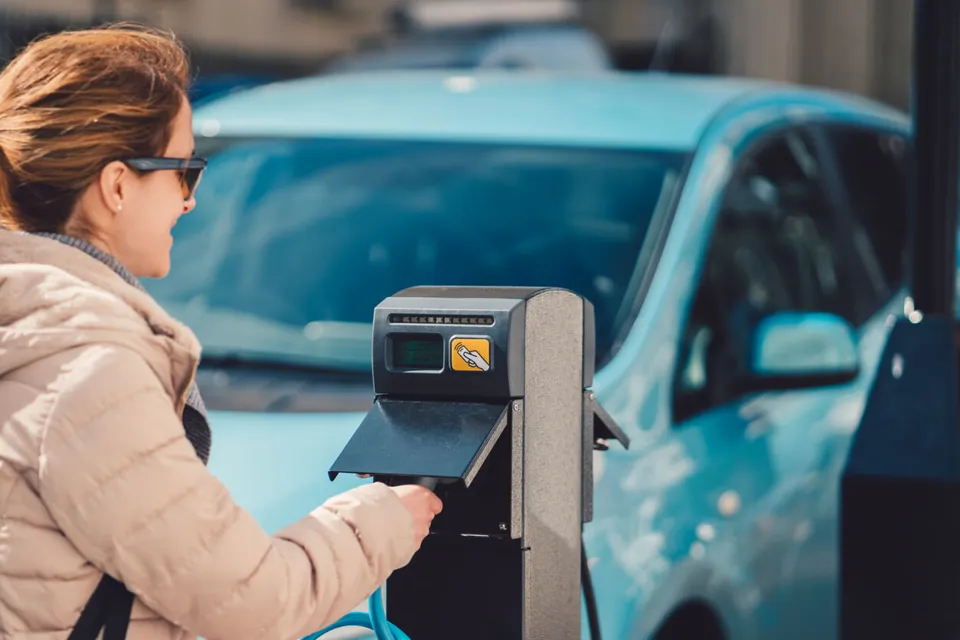The Government has set aside £37 million to help fund the installation of charging points for electric vehicles at private dwellings, railway stations and on-street locations – but none of the money will be available to businesses.
The cash will cover 75% of the cost of the installation work but companies looking to add EVs to their fleets will not be eligible for the grants.
While welcoming the funding, Nissan wants to see a similar move to help fund the charging infrastructure for businesses.
John Pollock, corporate sales director, said: “The Government has got this the right way round. It is taking the right approach by getting charging units into people’s homes and the local environment.
“If you want to extend the coverage of these electric vehicles, the best way is to have more domestic charge points.
“But we would also like to see a scheme like this extended into the private sector.”
Pollock said Nissan worked closely with the Government and as part of an ongoing dialogue would be lobbying for a scheme similar to the £37m project just announced.
“Being realistic we wouldn’t envisage that it would be the same level, but we would certainly like to see an amount of funds made available to the private sector of around £15m to £20m,” said Pollock.
Scheme will help electric vehicle sales
While admitting that the scheme for domestic users would help companies like Nissan with their EV sales, he said he would like to see a “greater amount of Government commitment” to the private sector.
When the Government’s Plugged-in Places programme was launched three years ago, grants were made available to businesses for charging infrastructure but the amounts varied from region to region and were normally only 50% or less.
And while the scheme officially comes to an end on March 31, a similar scheme is expected to be announced soon.
Adrian Vinsome, head of programmes for Cenex, which runs Plugged-in Midlands, said: “We expect the grant scheme to continue in the Midlands and the grant is 40% of the capital cost. We welcome applications from businesses for funding.”
He added that, on average, the installation of a double charging point for a company would be between £4,000 and £5,000. But for many businesses, even with these grants the cost of installing charging points has deterred them from switching from diesel to electric vehicles.
Ian Metcalf, fleet manager of the Hertfordshire-based Grass Roots Group, has trialled two electric Renault Kangoo vans which proved perfect for his needs.
“We asked for a price for installing two charging points, each just two metres from the power supply, and were quoted £9,000 through the Government’s Plugged In Places scheme,” he said. “We realised that it would be untenable.
“At that price – and bearing in mind the additional initial cost of an electric vehicle – it would be about seven years before we would see a return on our investment.
“Unless we can find a cheaper way we probably won’t do it.”
Publicly-available infrastructure
A DFT spokesman said the £37m did not include a specific grant for businesses as the majority of funding would be used to provide publicly-available infrastructure which would help to facilitate longer journeys for business fleets or employees.
“We are providing funding to local authorities to support the installation of rapid chargers close to the strategic road network or at key points within their boroughs. This will enable drivers, including business users, to quickly and conveniently top-up their vehicle’s charge without being unduly delayed,” the spokesman said.
“The rapid chargers could, for example, be installed at locations where business vehicles, stop for short periods of time as part of their duty cycle. We would welcome local authorities entering into partnerships with other organisations to help them to maximise the benefits of this grant scheme.”
He said new charge points at railway stations would help businesses and employees with EVs to complete their entire door-to-door journey and employees could benefit from the domestic charge point grants, which could help business-related journeys to and from home.
Asked about the possibility of any new grant scheme for businesses, the spokesman said: “We do not have any plans at present.
“However, this is an emerging and developing market and we will continue to review the package of support that is available.
“We are providing a generous package of support to businesses to help them take advantage of plug-in vehicles through the vehicle grants, tax benefits, the Plugged-in Fleets Initiative and, indirectly, through the provision of chargepoints in public areas.”
















Patriot - 13/03/2013 23:00
This whole scheme is absurd,it is costly and not financially viable for any business. "new charge points at railway stations would help businesses and employees" Really? The DfT 'spokesman'has obviously never tried parking at a railway station. The parking companies who operate and control railway forecourt parking usually invoke Clause 14 of the Railway Bye-laws so unless the government is going to pass legislation that allows free parking for charging EV's at railway stations this is a dead duck. Like the whole EV scam.